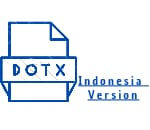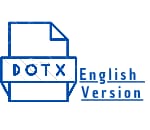Insentif Pajak, Aplikasi Akuntansi, dan Pemanfaatan E-Filing pada Kepatuhan Wajib Pajak Orang Pribadi UMKM
DOI:
https://doi.org/10.35137/jabk.v10i3.178Keywords:
Applications of accounting, Compliance individual taxpayers of MSMEs, Tax incentiveAbstract
The digital era changes a person's consumptive pattern to enter the world of e-commerce. The digital era also supports taxation, not only that but it can facilitate daily activities. Along with the growing digital penetration MSMEs have entered e-commerce and participated in the digital ecosystem. The purpose of this study is to analysis the use of tax incentives, accounting applications, and the use of e-filing which has an impact on taxpayer compliance by individual-owned MSMEs. The tax incentive variable of this study refers to the Tax Regulation Harmonization Law (UU HPP). The sampling technique is purposive sampling. This study used a likert scale, which is 1 strongly disagree, 2 disagree, 3 agree, and 4 strongly agree. The sample of this study was 80 individual-owned MSMEs in the culinary field throughout Jabodetabek registered on the Grab platform with certain criteria. The study was conducted online spreading questionnaires through social media. This research was processed using Partial Least Square (PLS) with the SmartPLS software program version 3.0 carried out in 2022. It can be concluded that tax incentives, accounting applications, and the use of e-filing have a positive and significant influence on MSME tax compliance.
Downloads
Downloads
Published
Issue
Section
License
Copyright (c) 2023 Wanda Maulida, Rizka Ramayanti

This work is licensed under a Creative Commons Attribution-NonCommercial-ShareAlike 4.0 International License.
Authors retain the copyright of the work published in this journal and grant first publication rights to the journal. Authors may make separate, additional contractual arrangements for non-exclusive distribution of the journal-published version of the work (e.g., posting it to an institutional repository or publishing it in a book) with acknowledgment of its initial publication in this journal. Authors are permitted and encouraged to post their work online (e.g., in institutional repositories or on their websites) before and during the submission process, as it can result in productive exchanges, as well as earlier and greater citation of the published work.
Use of published articles will be governed by the Creative Commons Attribution license as currently displayed at Attribution-NonCommercial-ShareAlike 4.0 International (CC BY-NC-SA 4.0).




